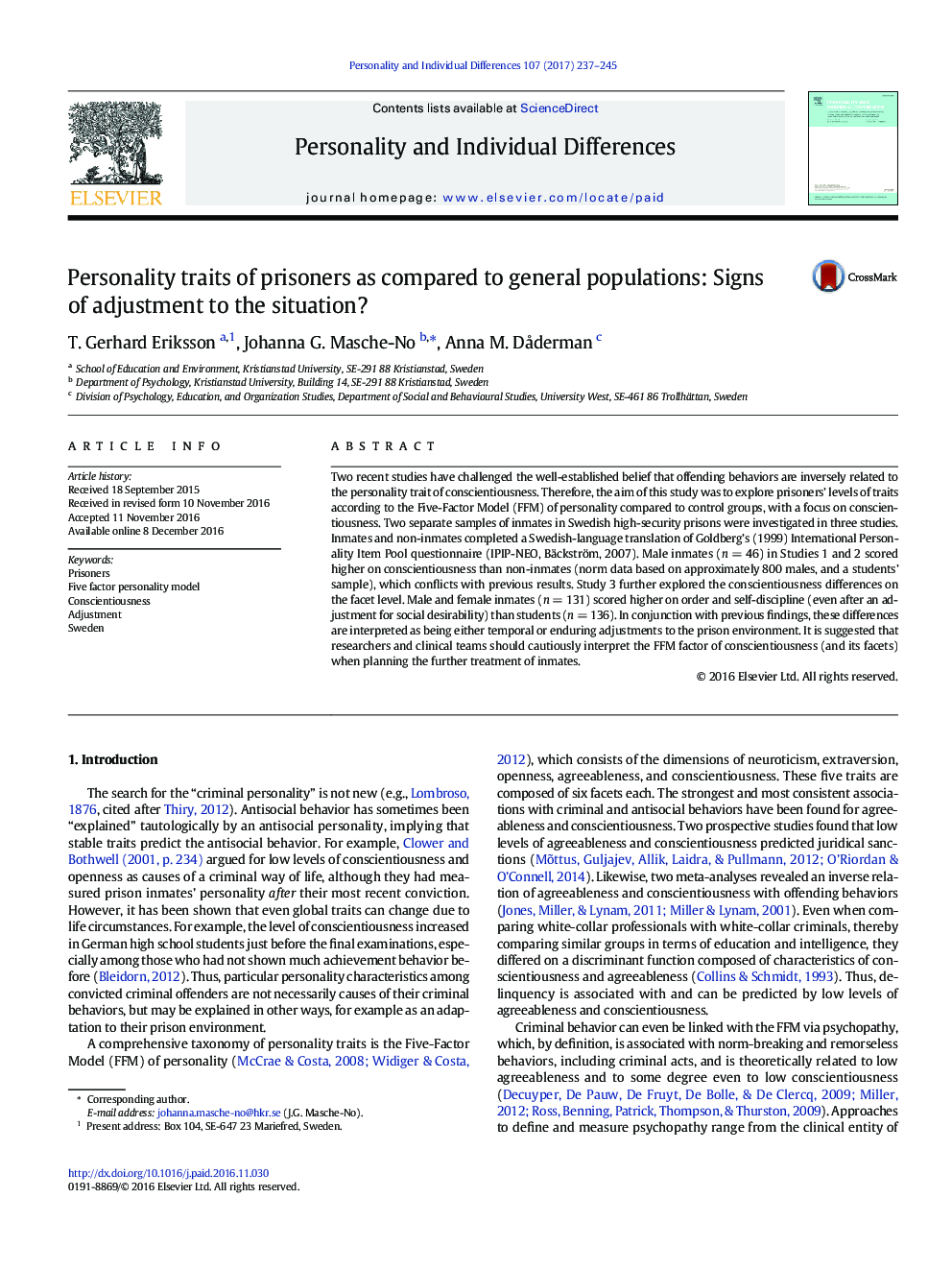| کد مقاله | کد نشریه | سال انتشار | مقاله انگلیسی | نسخه تمام متن |
|---|---|---|---|---|
| 5036162 | 1472011 | 2017 | 9 صفحه PDF | دانلود رایگان |
- Two samples of inmates in Swedish prisons were compared to five control groups.
- Inmates exceeded controls on conscientiousness facets reflecting their environment.
- Also prison guards scored higher on items reflecting their environment.
- These findings are interpreted as an adaptation to the prison environment.
- Conscientiousness scores may not be used for predicting inmates' future offences.
Two recent studies have challenged the well-established belief that offending behaviors are inversely related to the personality trait of conscientiousness. Therefore, the aim of this study was to explore prisoners' levels of traits according to the Five-Factor Model (FFM) of personality compared to control groups, with a focus on conscientiousness. Two separate samples of inmates in Swedish high-security prisons were investigated in three studies. Inmates and non-inmates completed a Swedish-language translation of Goldberg's (1999) International Personality Item Pool questionnaire (IPIP-NEO, Bäckström, 2007). Male inmates (n = 46) in Studies 1 and 2 scored higher on conscientiousness than non-inmates (norm data based on approximately 800 males, and a students' sample), which conflicts with previous results. Study 3 further explored the conscientiousness differences on the facet level. Male and female inmates (n = 131) scored higher on order and self-discipline (even after an adjustment for social desirability) than students (n = 136). In conjunction with previous findings, these differences are interpreted as being either temporal or enduring adjustments to the prison environment. It is suggested that researchers and clinical teams should cautiously interpret the FFM factor of conscientiousness (and its facets) when planning the further treatment of inmates.
Journal: Personality and Individual Differences - Volume 107, 1 March 2017, Pages 237-245
